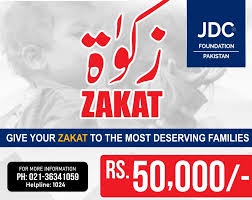Prolusion
Zakat, one of the five pillars of Islam, is a mandatory act of charity that purifies wealth and fosters social responsibility. For eligible Muslims, paying zakat is a cornerstone of their faith, expressing gratitude for blessings and supporting those in need. This comprehensive guide delves into the essentials of pay zakat, empowering you to fulfill this sacred duty with clarity and confidence.
Who Needs to Pay Zakat?
The obligation to pay zakat falls upon Muslims who meet specific criteria. Here's a breakdown of who qualifies:
Age: You must be a mature adult, having reached the age of puberty.
Mental Capacity: Sound mind is essential. You must be mentally capable of managing your finances and understanding the concept of zakat.
Freedom: You cannot be a slave.
Wealth: You must possess a minimum amount of wealth, known as the nisab, for a full lunar year. The current nisab is equivalent to the value of 87.48 grams of gold.
Calculating Your Zakat
Once you've established your eligibility, calculating your zakat contribution becomes straightforward. The standard rate for zakat is 2.5% of your total wealth exceeding the nisab. Here's what to include when calculating your zakat:
Cash and Savings Accounts: This includes money in bank accounts, checking accounts, and any readily accessible cash.
Investments: The value of stocks, bonds, and real estate holdings (excluding your primary residence) is included.
Business Assets: The value of your business inventory and any surplus stock exceeding your operational needs is counted.
Gold and Silver: The value of any gold or silver exceeding what is considered for personal adornment is included.
Exemptions and Considerations
There are certain categories of wealth exempt from zakat. These include:
Personal Belongings: Your primary residence, clothing, and everyday household items are not included.
Debt: If you owe a debt that exceeds your assets, you are not obligated to pay zakat until your debts are settled.
Transportation: One vehicle used for personal or business needs is typically exempt.
Household Goods: Basic furniture and appliances needed for daily living are not included.
Distributing Your Zakat
The spirit of zakat lies in helping those less fortunate. Here are the designated recipients of zakat:
The Poor and Needy: This includes those struggling financially and unable to provide for basic necessities.
The Recent Convert: New Muslims who may require assistance integrating into the community.
Zakat Collectors: Individuals authorized to collect and distribute zakat funds.
Those in Debt: People facing overwhelming debt that hinders their livelihood.
Wayfarers (Stranded Travelers): Those who are far from home and require temporary financial aid.
Ibn Al- سبيل (Those Working for the Cause of Allah): Individuals working to spread Islam or engaged in charitable activities.
Slaves (Not Applicable in Modern Times): In historical contexts, zakat could be used to purchase the freedom of enslaved people.
Finding a Reputable Charity
Distributing your zakat directly to those in need is an option. However, many Muslims choose to donate through established charities. Here are some factors to consider when selecting a charity:
Supporting organizations like the JDC with your Zakat can have a profound impact on communities in need worldwide. By donating your Zakat to the JDC, you are not only fulfilling your religious obligation but also contributing to vital humanitarian efforts. The JDC is renowned for its extensive reach and effective programs that provide essential services, including food aid, healthcare, education, and disaster relief, to vulnerable populations across the globe. Your Zakat donation to the JDC can make a meaningful difference in the lives of countless individuals and families facing adversity, offering them hope, dignity, and a brighter future. Join hands with the JDC today and be a beacon of compassion and generosity in the world.
Transparency: Choose a charity that provides clear financial reports and communicates how zakat funds are used.
Efficiency: Seek an organization with a strong track record of delivering aid effectively.
Alignment with Values: Select a charity whose mission aligns with your personal charitable goals.
The Significance of Zakat
Paying zakat offers a multitude of benefits, both for the giver and the receiver. Here are some key aspects to consider:
Spiritual Purification: Zakat cleanses wealth from greed and materialism, fostering generosity and compassion.
Social Responsibility: Zakat promotes a more equitable society by bridging the gap between the wealthy and the less fortunate.
Economic Growth: By injecting resources into underserved communities, zakat can stimulate economic activity and create opportunities.
Personal Fulfillment: Fulfilling this religious obligation brings a sense of satisfaction and strengthens faith.
Final thoughts
Paying zakat is a sacred act that strengthens your connection with Allah and fosters a more just and compassionate society. By understanding the eligibility criteria, calculating your contribution, and finding a reputable charity, you can confidently fulfill this essential pillar of Islam. Remember, even seemingly small contributions can make a significant difference in the lives of others. Let your zakat become a source of blessings for you and those in need.


No comments yet